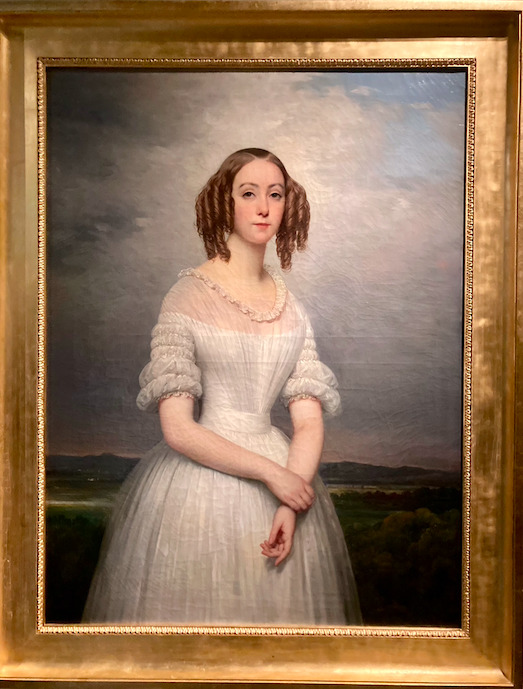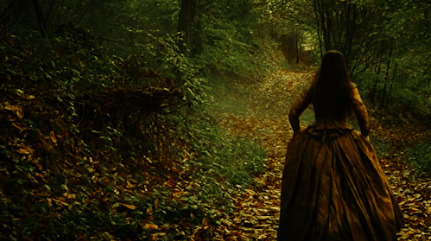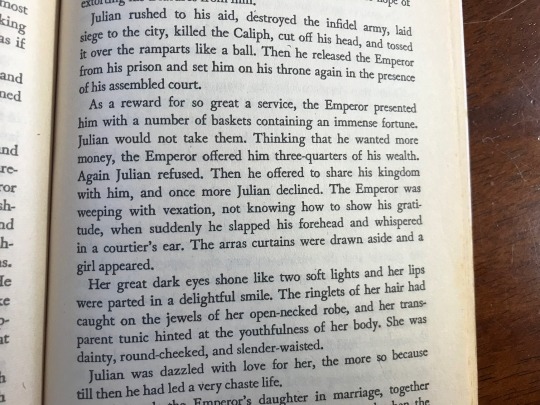#flaubert
Photo

Nan Goldin - Joey and Andres in Bed, Berlin, 1992
Cibachrome print (70 x 101,5 cm)
❝ Il voyagea.
Il connut la mélancolie des paquebots, les froids réveils sous la tente, l’étourdissement des paysages et des ruines, l’amertume des sympathies interrompues.
Il revint.
Il fréquenta le monde, et il eut d’autres amours, encore. Mais le souvenir continuel du premier les lui rendait insipides ; et puis la véhémence du désir, la fleur même de la sensation était perdue. Ses ambitions d’esprit avaient également diminué. Des années passèrent ; et il supportait le désœuvrement de son intelligence et l’inertie de son cœur. ❞
— Gustave Flaubert, L’Éducation sentimentale
361 notes
·
View notes
Photo

"Portrait de Madame Achille Flaubert" par Joseph-Désiré Court (1839) présenté à l'exposition “Des Cheveux et des Poils” au Musée des Arts Décoratifs, avril 2023.
106 notes
·
View notes
Text
Mattiniero
MATINAL. L’être, preuve de moralité. — Si l’on se couche à 4 heures du matin et qu’on se lève à 8, on est paresseux, mais si l’on se met au lit à 9 heures du soir, pour en sortit le lendemain à 5, on est actif.
MATTINIERO. Esserlo è prova di moralità. Se ci si corica alle quattro del mattino e ci si alza alle otto si è poltroni, ma se si va a letto alle nove di sera per uscirne l’indomani alle cinque, si è attivi.
G. Flaubert, Bouvard e Pécuchet [1881], dal Catalogue des opinions chic. Online su WikiSource.
14 notes
·
View notes
Text
Cela se dit en tragédie, et ne doit plus se dire, parce que jamais cela ne fut pensé.
(Flaubert, Lettre à Mademoiselle Leroyer de Chantepie, 18 mai 1857)
7 notes
·
View notes
Photo

Je crois que le succès auprès des femmes est généralement une marque de médiocrité, et c'est celui-là pourtant que nous envions tous et qui couronne les autres.
- Gustave Flaubert
#flaubert#gustave flaubert#quote#french#crown#femme#beauty#gillian anderson#achievement#mediocrity#success
152 notes
·
View notes
Text
#polls#literature#victor hugo#alexandre dumas#stendhal#guy de maupassant#théophile gautier#honore de balzac#flaubert#musset
34 notes
·
View notes
Text
[avec ma main brulee, j'écris sur la nature du feu.]
yanmış elimle ateşin doğası hakkında yazıyorum.
18 notes
·
View notes
Text
Very interesting quote from Gustave Flaubert about Napoleon and the Empire:
"When you observe life with a little attention, you see cedars as being a little less tall and bushes somewhat higher. All the same, I don't like the habit some people have of disparaging great enthusiasms or minimizing sublime impulses that surpass nature. Thus Vigny's book, Servitude et grandeur militaires, shocked me a little at first glance because I saw in it a systematic depreciation of blind devotion (the cult of the Emperor, for example), of man's fanaticism for man, in favor of the abstract, dry idea of duty, a concept I've never been able to grasp and which does not seem to me inherent in human entrails. What is noble in the Empire is adoration of the Emperor, a love that is exclusive, absurd, sublime, truly human. That is why I have little understanding of what la Patrie, the fatherland, is for us today."
Letter to Louise Colet, [Rouen], [December 11, 1846]
(Bold letters by me)
#Gustave Flaubert#Flaubert#quote#quotes#letter#french romanticism#romanticism#1800s#1800s literature#19th century#19th century literature#French lit#french literature#Napoleon#napoleon bonaparte#Vigny#Louise Colet#Colet#bonaparte#The Letters of GUSTAVE FLAUBERT 1830-1857#SELECTED EDITED AND TRANSLATED BY Francis Steegmuller
14 notes
·
View notes
Text
The oldest French fantasy novel?
In 2005, the French fantasy author Laurent Kloetzer read the masterpiece of the classic 19th century author Flaubert: Salammbô. Upon finishing the book, he decided to post online a mock-review of the novel, treating it as if it was a new publication, a recent fantasy novel of the 2000s. This mock-review gathered some attention, and is one of the reasons many people like to evoke Flaubert’s Salammbô as the “first French fantasy novel”.
Here is a rough translation of the review:
The French fantasy exists, and I discovered it in a collection of general literature! We know the reluctance of some authors to be published in collections with colorful covers, probably fearing to lose a potential audience. It is probably what Gustave Flaubert thought, a new author very promising for the genre. His surprising novel, titled Salammbô after the name of the female protagonist, proves that there is a possibility for my favorite type of literature to be recognized and respected in France.
Carthage and its cruel civilization at the time of Hamilcar Barca are the core and the main subject of this book. The author pretends in an annex that he heavily documented himself and that he has read everything there was to read on the topic, but it was probably to make the literary critics believe he had written a historical novel, a genre that is very trendy nowadays. However, no need to dig deep to understand that it is not a pile of badly-digested erudition, neither a patchwork of references stitched to each other : rather it is a powerful dreaming, a crazy and shimmering imaginary world, a Carthage just as unreal and fantastic as the gods and heroes of Gustave Moreau’s paintings.
Sir Flaubert crushes with his shadow all the French-speaking authors that tried to walk the same path as Tolkien’s. What incredible images! What coherence, what harmony, between the Gods, the palaces, the landscapes, the clothes! The surprising sonorities of the names, of the characters, of the precious stones and of the materials carry us in a far-away otherworld. We are taken into a civilization that can seem alien to us, for it was vanquished and destroyed without leaving much traces behind, and yet in which we will find men whose feelings are too close to our owns.
I haven’t even spoken of the plot, an abundant, complex, remarkable plot! We will find there, without ever being bored, battle scenes, an extraordinary party, politics, magic, the burglary of a sacred temple (worthy of Fafhrd and the Gray Mouser!), deadly tricks, human sacrifices… and battles, yet again. It is about the war of an old city against its mercenaries, of the impossible love between a barbarian and a princess lost in her mystical quest. Life is present everywhere. People dit a lot in Salammbô, blood is spilled, but it is to better regenerate the world.
Flaubert’s imagination would be the closest, in terms of Anglo-Saxon authors, to the one of Michael Moorcock, the one used to conceived his Elric series, and even more, his Gloriana. Just like Moorcock, the French authors likes baroque universes, colorful apocalypses, and atmospheres with a strange eroticism… But the reader can rest assured: no never-ending trilogy here! The novel is in one block, dense, balanced, perfectly built, from the introduction scene to the astounding but needed conclusion. Just like with Tolkien, the universe is complete, coherent and mastered, it is the goal and the foundations of the work. The battles are just as epic and bloody as those of Robert Howard, and I already talked about the surprising closeness with Fritz Leiber’s stories.
But unlike all those authors, that I can only read translated, our author is French and his novel is served by a fabulous language that is the true entryway to his imaginary world – a language that brings all the truth to this dream. I only ever felt spirited away by the magic of writing only once, with Stefan Wul’s Nôo.
With Salammbô, Gustave Flaubert gave to the French literature of the imagination a work that cannot be ignored, and that all the lovers of the genre must read. We can only wish him a long and successful career!
#fantasy#fantasy novel#french fantasy#gustave flaubert#review#flaubert#salammbô#tolkien#foreign fantasy#michael moorcock
7 notes
·
View notes
Text

Anna Biller's review of her man's book, "48 Rules for Power"
"I can't believe what a classic this book has become, but when I think about it I'm not surprised. It's completely brilliant. And what's interesting is to continually discover, when I'm reading Stendhal for instance, or Balzac, or Flaubert, or even Proust, how much of it must have come from a love of French literature. I knew that the book is in essence teaching us how to live according to the rules of the French court, including many examples of Louis XIV etc., but I hadn't quite understood the extent to which it was inspired by certain specific French writers. The deep love of literature, philosophy, and history is infused throughout the book, presented in both an educational and an entertaining manner.
I have to laugh when people refer to this and Robert's other books as "evil." Do people think that being educated is evil? When they scoff at how the book is popular in prisons, is it because they want to keep knowledge and power out of the hands of the most disenfranchised people in society, in order to preserve it for already-educated privileged white people? The people who come up to Robert in public and say the book changed their life are often young people of color starting their careers, both American and from a diverse range of other countries, both men and women. The last two fans were both waitresses from Japan. Often, they're black entrepreneurs. Most of these people haven't studied literature, philosophy, or history, but they can glean their lessons from the many key texts this book references and condenses in an accessible format. And it's getting young people actively interested and engaged in reading, critical thinking, and history. In that sense it's even revolutionary, with the ability to change the balance of who holds power in the world. By this I mean people who have traditionally been kept from power due to economic and sociological factors. Absolutely brilliant."
#anna biller#robert greene#french literature#relationship goals#goodreads#stendhal#flaubert#gustave flaubert#proust#balzac
6 notes
·
View notes
Text
" Vi lo que nadie más podía ver. Saqué mi corazón de su jaula. Toqué el fuego para sentir las llamas. Sostuve la rosa y sentí la espina. Me lastimé para mantenerte fuerte. Veo mi cara en el agua, y te veo allí.. Tu voz tan clara como el cristal nunca se apagará, nunca se apagará "

#Ezra Miller#artists on tumblr#my art#my artwork#romanticism#dark acadamia aesthetic#charcoal and pastel portrait#drawing#Leon Dupois#Mandame Bovary#Flaubert
4 notes
·
View notes
Text





Mia Wasikowska dans "Madame Bovary" de Sophie Barthes, 2014.
7 notes
·
View notes
Text
Quando è troppo, è troppo!

LIVRE. Quel qu'il soit, toujours trop long.
LIBRO. Qualunque sia, sempre troppo lungo.
G. Flaubert, Bouvard e Pécuchet [1881], dal Catalogue des opinions chic. Online su WikiSource.
Foto: dai miei scaffali.
3 notes
·
View notes
Text
Pour faire de l'Art, il faut un insouci que je n'ai plus.
(Flaubert, Lettre à Edma Roger des Genettes, 3 octobre 1875)
9 notes
·
View notes
Photo

Je crois que le succès auprès des femmes est généralement une marque de médiocrité, et c'est celui-là pourtant que nous envions tous et qui couronne les autres.
- Gustave Flaubert
76 notes
·
View notes
